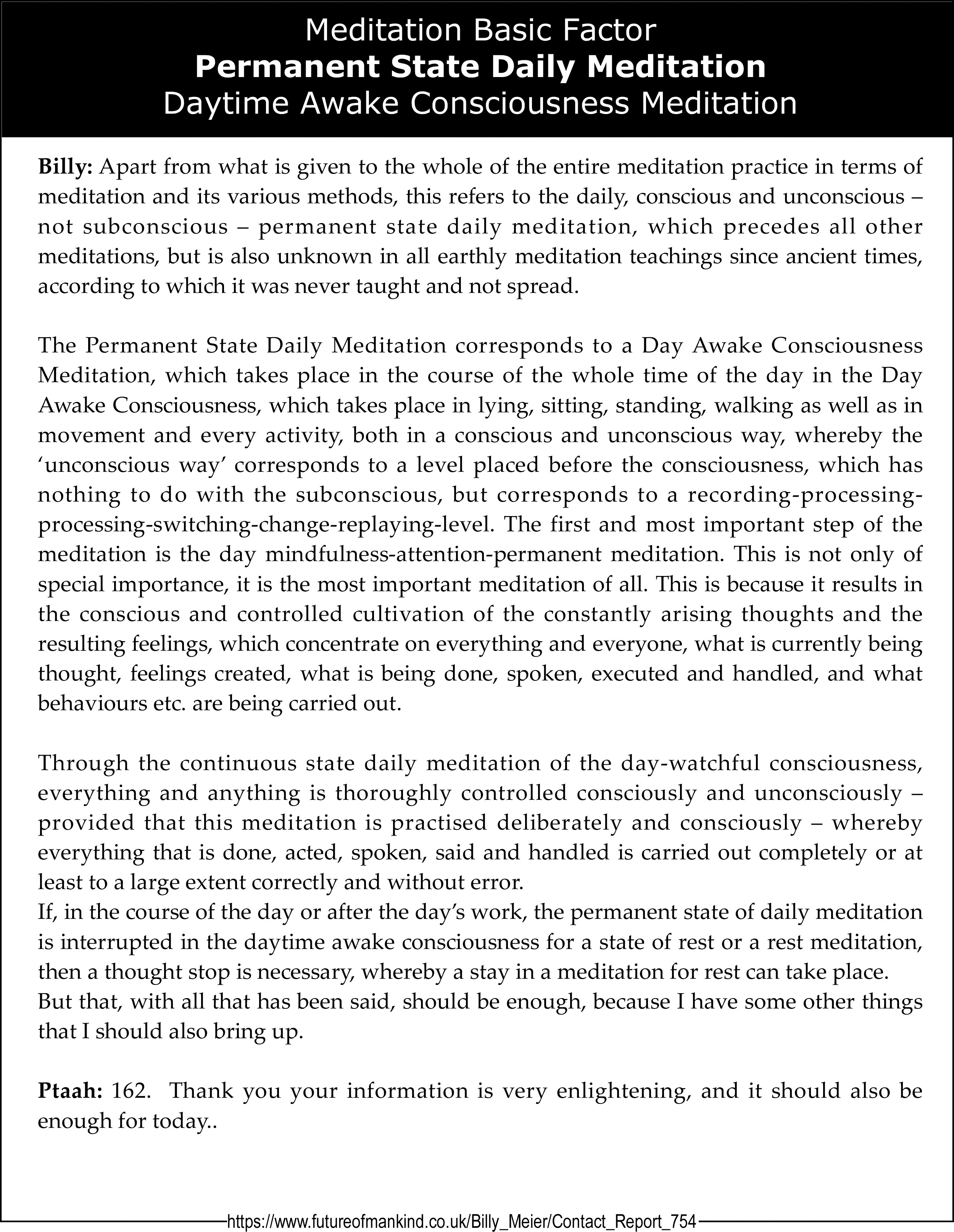Daniel, I moved your questions from the Beginning Meditation video on the Billy Meier Books YouTube channel to here:
Hi Mike. I have been meditating every morning for 2 weeks now between 30 minutes and a little over 1 hour. And I wanted to ask you a few questions to see if I'm doing it right or if I got it right.
Should the breathing always be kept in the same rhythm? Because the body relaxes in meditation, the breathing rhythm also decreases. This causes the body at some point to need a breath (sigh) or may cause us to fall asleep. So, should we maintain a normal breathing but without slowing down, or is it not necessary?
Does meditating with open eyes work, and does it have the same effect?
Should mindfulness of breathing always be used throughout the day as a type of open-eyed meditation or only for brief moments when required? I think it would help to maintain more neutral-positive thinking.
When I meditate sitting, my body posture relaxes and slouches my upper back in the neck part, even when I rest my back on the back of the seat. It causes discomfort in the back of my neck and upper back, as my neck goes forward and my upper back slouches and puts pressure on that area. I tried meditating lying down and obviously I don't have that problem and I don't fall asleep. But, from what I understand, it is better to meditate sitting. When meditating sitting, does it require a firm posture so that the back does not slouch or should it be relaxed, any recommendations to correct that problem?
I understand that the purpose of meditation is to contact the true inner self. Does that mean that when you manage to clear your mind of thoughts and they do not come, for example, in 40, 60 or more minutes, that moment when you achieve that silence, stillness, tranquility, peace, etc., am I connected with my inner self, or is it something more than that?
A hug. Salome.
Daniel

